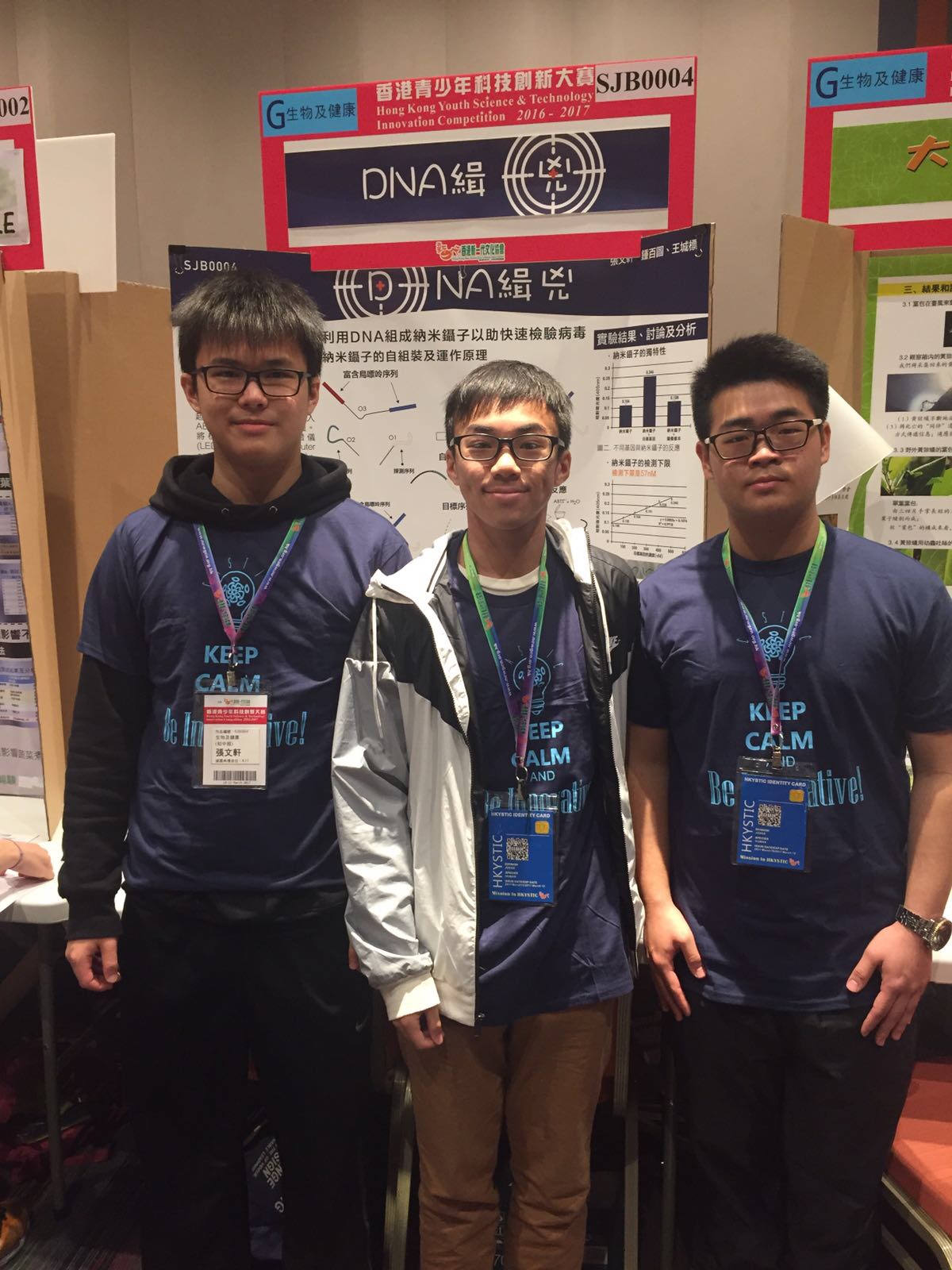Human Practices
We know full well that our experiments and designs are interrelated to the community. In fact, our purpose of this project is to provide a cheaper, faster yet a more specific and precise method for diagnosis of H3N2 virus. Therefore, apart from the experimental and designing work, we put much effort on human practices as well. These human practices are categorised as local competition, workshops, idea exchange and public engagement. Details are shown below and on the Idea Exchange and Public Engagement page.
Local Competition
To fully equip ourselves with DNA nanotechnology manipulation skills and prepare for designing the nano-device, six of our members participated in [http://sic.newgen.org.hk/load.php?link_id=206428 Hong Kong Youth Science & Technology Innovation Competition 2016-2017], a major local science competition for high school students. In this competition, our team members designed a nano-device to detect the presence and concentration of E. coli in our body. They also showed and explained their progress to thousands of public audience in an exhibition. The visitors included professors from various aspects in science, professions in science era as well as many lecturers, teachers and students from different universities and high schools.
This activity served as an important channel for us to present the usage of the latest nanotechnology to the public. Overall, the audience showed immense interest in nanotechnology because this is a rather new era in diagnostic aspect. Also, this technology still has infinite possibilities in future usage. Hence, we are pleased to introduce the prosperous future of this kind of nanotechnology.
This kind of idea exchange is indeed exceptionally important to our project in the way that we could listen to others what else we could do in order to enhance our works. All opinions, which might have been overlooked before, are so valuable that they really have boosted our confidence in designing our nano-cube for iGEM competition.
Workshops
First visit of team from University of Hong Kong (HKU) to our school
In early March, seven members from team HKU visited our school. In the workshop, our team members introduced our previous project on nanotechnology to them. We shared how we were inspired to design a nano-device to detect E. coli. We also showed the structure of our nano-device and how specific it was to work with E. coli. On the other hand, as returning iGEM participants, iGEM HKU shared their valuable experience in joining the previous iGEM competition, as well as gave us useful advice participating in this competition.
Since the project from team HKU last year was about nanotechnology as well, they briefly introduced their works from last year. We were deeply impressed by their creativity in designing a complex tetrahedral structure, which is much more difficult than our 2D nano-device used in our previous project. Looking back, as building up a nano-cube relies heavily on imagination, their precious sharing on their previous works had inspired us a lot.
Second visit of team HKU to our school
The second visit took place at our school in early-April. Three of the iGEM HKU members came to our school and gave us an extensive lecture on synthetic biology. They taught us some advanced and recent DNA nanotechnology, ranging from some basic ideas such as the fundamental unit of DNA, to the application of using nanotechnology to tackle molecular medical issue. All these have enriched our DNA engineering knowledge beyond our biology textbook, connecting us to the contemporary worldwide actual research era.
Plus, they demonstrated to us how to extract DNA from our saliva in a small laboratory activity. This demonstration is utterly useful in the way that it provided us a tool to educate the general public what DNA actually is and how we can demonstrate the “visibility” of DNA to them, so that we could arouse their interest towards DNA technology.
iGEM Asia Team Leader’s Workshop
On 17th June, we participated in iGEM Asia Team Leader’s workshop organised by Professor King Chow from The Hong Kong University of Science and Technology (HKUST). In this workshop, several successful teams in the previous iGEM competitions came and shared with us their valuable experience. Plus, members from iGEM Safety Committee delivered some very useful safety guidelines to us to make sure we could go through our competition safely.







